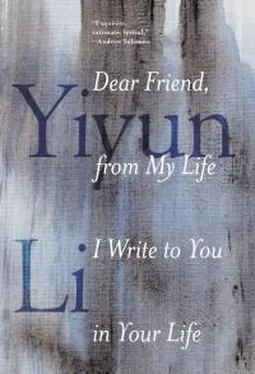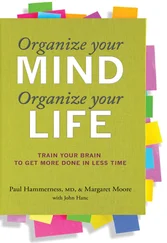—
SOME OF MY earliest literary education came from a set of illustrated autobiographies of Maxim Gorky. The three palm-sized books —My Childhood, In the World, My Universities— abridged and supplemented with vivid ink drawings, were called little people’s books, though they were not for children. (It was a literary format that had made Shen Congwen, one of my favorite Chinese writers, lament the loss of literature in Communist China—even an illiterate person could flip through them, just as I started reading the Gorky autobiographies before I had learned any Chinese characters.) As a child, though, I obtained endless pleasure from these three books—my own possessions, and I owned very little. There was not a single dull page: Gorky’s grandfather beating his grandmother, his stepfather kicking his mother, his uncles convincing a kindhearted young man to carry a heavy cross to the graveyard and watching him get crushed to death without any remorse, Gorky being clubbed as an apprentice. Death happened every few pages: his father, his brother, his mother, a young man with consumption who used to hum melancholy tunes, friends and neighbors and strangers. The book’s messages—hardship, inequality, Gorky’s political awakening—all these were lost on me. What entertained me were the range of characters: ragpickers, rich relatives, sailors, townspeople, priests, icon painters, shop owners, longshoremen, widows, prostitutes, beggars, a one-armed man, a blind man, a cook who cried over the beauty of poetry, a beautiful woman who loaned Gorky books, a tyrannical bakery owner mourning his pigs poisoned by his hired hand. (What a strange introduction to Russian literature. Beginning with Gorky feels like climbing on top of a bungalow, not realizing that nearby lies the Great Wall of China.)
Rereading the autobiographies now, I can still recognize the allure of the books. Gorky goes through a life that maims and defeats others but always leaves him center stage, more elevated and heroic and charismatic with each adventure. There is no time to be wasted between one drama and the next; in fact, there is no life to be lived between dramas.
The time between dramas: Gorky happily edits out that space from his life; McGahern seems to find peace in that space for living and writing. I would be livid if I took Gorky’s position; I admire McGahern’s without understanding it.
—
WHAT IS PEACE, what is security? All I wish, when bleakness besets me again, is to be left alone, to curl up, and to stay still. I cried when I reread the ending of McGahern’s memoir the other day, with his mother and the lanes they had loved:
If we could walk together through those summer lanes, with their banks of wild flowers that “cast a spell,” we probably would not be able to speak, though I would want to tell her all the local news.
We would leave the lanes and I would take her by the beaten path the otter takes under the thick hedges between the lakes. At the lake’s edge I would show her the green lawns speckled with fish bones and blue crayfish shells where the otter feeds and trains her young. The otter whistles down the waters for the male when she wants to mate and chases him back again to his own waters when his work is done; unlike the dear swans that paddle side by side and take turns on their high nest deep within the reeds. Above the lake we would follow the enormous sky until it reaches the low mountains where her life began.
I wish I had left a part of me on those walks in China, and it could peek into this life and know that its resolve to stay a fugitive is wise. Instead, one holds on to smaller doses of that nowhereness: reading a book that keeps the world at bay for as long as the words last, making up stories about characters who care little about one.
I wonder if I am late in recognizing this: fatalism is not following the predestined path unquestioningly; it is at every turn making a defiant decision against one’s intuition. The part that could be so free and happy on its own is not fit to live among people. It strives in vain to articulate its right to be; it shies away from drama or feeling yet the avoidance only leads to melodrama; it compromises one, it shames one, it terrorizes one; it makes one’s life into a cautionary tale. But subtract it and one’s life becomes another cautionary tale. A life lived to forget is a life lived to remember, too.
—
ON MY SECOND day in Leitrim, I was interviewed onstage. One of the few things I remember talking about was McGahern’s country lanes that were still around, and the roads in Beijing that no longer remained. The auditorium, going up at a steep angle, was filled with readers who came back each year for the festival. When I described the places as McGahern described them, they murmured in consent. An old man said, the way you looked up when you talked, you reminded me of John. I was moved. There was no way for a Chinese woman to resemble an Irishman but for love and memory to say so.
After the interview, I met one of McGahern’s sisters. I said something about his books, and the talk went back to the country lanes. I’ll never forget them, I said.
And I’ll never forget your chicks, she said, speaking of the excerpt from my novella “Kindness” that I had read earlier:
When I was five, a peddler came to our neighborhood one Sunday with a bamboo basket full of spring chicks. I was trailing behind my father for our weekly shopping of rationed food, and when the peddler put a chick in my palm, its small body soft and warm and shivering constantly, I cried before I could ask my father to buy it for me. We were not a rich family: My father worked as a janitor, and my mother, ill for as long as I could remember, did not work, and I learned early to count coins and small bills with my father before we set out to shop. It must have been a painful thing for those who knew our story to watch my father’s distress, as two women offered to buy two chicks for me. My father, on the way home, warned me gently that the chicks were too young to last more than a day or two. I built a nest for the chicks out of a shoe box and ripped newspaper, and fed them water-softened millet grains and a day later, when they looked ill, aspirin dissolved in water. Two days later they died, the one I named Dot and marked with ink on his forehead the first to go, followed by Mushroom. I stole two eggs from the kitchen when my father went to help a neighbor fix a leaking sink—my mother was not often around in those days—and cracked them carefully and washed away the yolks and whites; but no matter how hard I tried I could not fit the chicks back into the shells, and I can see, to this day, the half shell on Dot’s head, covering the ink spot like a funny little hat.
I have learned, since then, that life is like that, each day ending up like a chick refusing to be returned to the eggshell.
People often ask if the incident with the chicks happened to me. That I never answer the question is accepted as a coy acknowledgment that the episode is autobiographical. But I have never had a chick in my life. I did not desire, on those Sundays when I trailed behind my father with the ration book, to own anything. There was no outsider who knew our story. There was, however, a woman who had once tried to talk with me as though I were a grown-up. She was older than my parents, and I did not understand her singling me out. She embarrassed me. My mother and her friends laughed at the woman’s intention to start a friendship; I always crossed the street when I ran into her.
When one does not have to account for one’s own existence in it, however, the world offers abundant joy. The co-op, with a cluster of shops around a courtyard, was a crowded place, but there were enough curious sights for me to endure the pushing and yelling and sometimes fistfighting among strangers. At the general store, where I stood in a queue for soap and laundry detergent and matches and, rarely, half a kilo of animal crackers, there was an overhead transit system with motorized wires. The shop assistants attached the payments to the metal clips, the money traveled to the cashier, and the change and the receipt traveled back—how it happened so reliably I could not figure out. Behind another counter, a row of jars stood in line, arranged by size, the smallest one my height, each with an apparatus affixed to the top. When a customer handed a bottle to the assistant, he needed to raise a lever to release the right amount of liquid—soy sauce, vinegar, sesame oil, or cooking oil—into the bottle. The meat and fish department boasted the biggest cutting board, which traversed the entire shop. It was always cold and damp there, as it was always dry and warm where rice and flour and beans and cornmeal were sold. The last was my favorite stop, as my father would let me help him hold a cloth sack, its mouth snugly fit around a metal chute. When the assistant measured out the ration, she tipped over the metal pan, and with a dull puff and a cloud of fine dust the flour or the rice filled the bag, weighing down our hands.
Читать дальше












